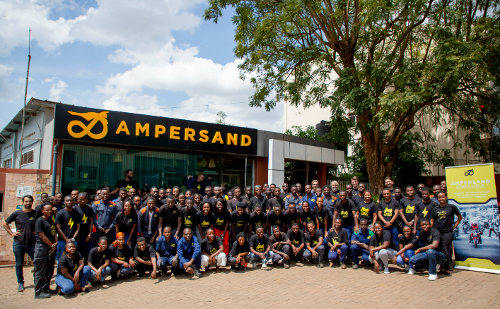The green revolution in tech startup funding continues on the continent with a new report showing Africa’s climate tech startups have overtaken their fintech counterpart, hauling almost half of all funding amassed so far in 2024.
Start-up funding favours African climate tech startups, with companies in this sector attracting 45% of the total funding raised by tech startups in Africa so far in 2024.
According to an analysis by startup funding data tracker Africa: The Big Deal, the sector has received US$325 million so far in 2024. While significant in percentage terms, a major downturn in overall funding for African startups over the past two years has weighed on overall funding for the sector, after years of growth.

“Climate Tech funding has been growing in absolute numbers in the past 5 years ($340m in 2019, $344m in 2020, $613m in 2021, $959m in 2022 and $1.1b in 2023),” the report explained.
“After its share of total investments reaching 36% in 2023, it seems on track to grow again in 2024 even though topping last year’s US$1.1b invested in Climate Tech seems unlikely at this stage,” the analysis added.
Despite raking in an impressive US$187 million in May, a surprise funding surge of 149% compared to investment funds tech startups raised in April, the sector has overall been dropping compared to previous years.
The Big Deal report attributes the slowdown primarily to a significant slump in funding within the fintech space. Once dominant, fintech startups have only managed to raise US$158 million so far in 2024, representing just 22% of total funding.
At the same time last year, funding to fintech stood at US$852 million of the US$1.7 billion raised by this time last year. This represented more than 50% of total funding then.
However, this year, Africa’s climate tech has overtaken fintech. The climate tech sub-sectors attracting the most funding in 2024 so far are Logistics & Transport (29%, $215 million) and Energy & Water, which is a not-so-distant third (18%, $132 million).
“But what’s particularly interesting is to look at the proportion of funding that is going to ventures that can be considered as ‘Climate Tech’,” the Big Deal explained, highlighting that Climate Tech covers a wide range of use cases.

Climate tech companies offering fintech solutions in various African markets raised US$30 million, while logistics and transport firms secured US$95 million. Tech startups in agriculture and food innovations received US$68 million, and deep tech climate solutions garnered US$10 million. Leading the pack, energy and water tech companies attracted US$132 million in investments.
The continued funding interest in climate tech breathes hope into the future of climate transition and action in Africa, as innovators leverage technology to accelerate resilience efforts.
The impact of increased funding is already being felt, with global investors providing much-needed resources and expertise. This support has enabled innovations, such as battery-swapping technology solutions, to increasingly grow across the continent. Chinese EV manufacturer, BYD, for instance, this week announced a partnership with Kigali-based EV line, Ampersand, to ramp up production to more than 40,000 electric motorcycles by the end of 2026.

Part of the plan is to scale not just the quantity but also the quality of the units, including high-quality battery solutions which will be more affordable.
“This partnership marks a major milestone for Ampersand as we continue to lead the charge in providing sustainable, cost-effective, mass-market EV solutions,” Ampersand CEO, Josh Whale, explains in a statement.
Credit: Boniface Orucho, bird story agency


